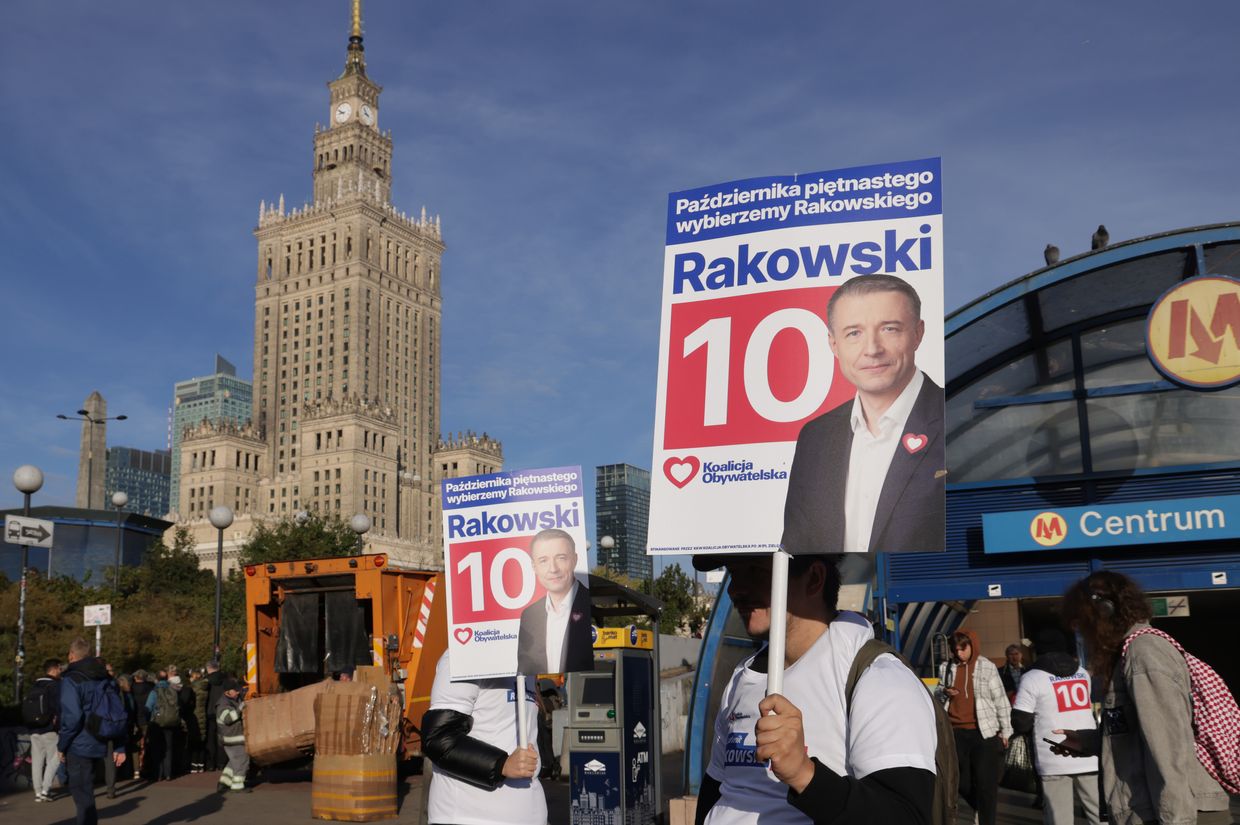Voting underway in Poland with high stakes for Ukraine

Poles are casting their ballots in the parliamentary elections on Oct. 15 as the ruling Law and Justice (PiS) party seeks to secure a third consecutive term in power.
The result will shape the future of Polish-Ukrainian relations, which have been marked by diplomatic disputes over the past few weeks.
Traditionally, the PiS-led government has been a staunch ally of Ukraine against Russian aggression, both in terms of humanitarian and military support.
More recently, however, Warsaw clashed with Kyiv over Poland's decision to prolong the Ukrainian grain import ban past the Sept. 15 deadline set by the EU. The tensions were further aggravated by strong statements from politicians on both sides.
Some experts believe that this shift in PiS's rhetoric was driven by the growing war and refugee fatigue among some segments of the Polish population. The ruling party supposedly adopted a harsher stance toward Kyiv to stop the shift of its voters to more radical factions.
Polish President Andrzej Duda, elected with PiS's support, has attempted to calm the tensions and assured Ukraine of the continued military support but emphasized that when it comes to mutual ties, the interests of Poles will always come first.
According to the polls, conservative-populist PiS is likely to secure the first place with up to 37% but unlikely to win enough mandates to form a new government on its own.
Its strongest challenger is the liberal-centrist Civic Coalition (KO), polling around 30% and led by former Prime Minister and ex-European Council President Donald Tusk.
KO's leader promised to restore Poland's pro-EU direction after PiS's clashes with Brussels over the rule of law. The liberal coalition has also backed ongoing support for Kyiv and for Ukraine's accession to the EU.
To form a new government, Tusk will likely need the support of two other players – the New Left and the Third Way coalition, the latter being composed of the agrarian Polish People's Party and the centrist Poland 2050 movement of Szymon Holownia. Both of them poll at around 10%.
The fifth political force is the far-right Confederation Liberty and Independence, currently polling a little under 10%. Its socially conservative and eurosceptic messaging makes it the most logical coalition candidate for PiS. However, leaders of both parties have in the past spoken against such an alliance.
The Confederation is also the most skeptical when it comes to supporting Ukraine. Its leaders have called for a more "transactional" and restrained approach when it comes to backing Kyiv.
Some of its more radical members have even promoted pro-Kremlin propaganda and decried the alleged "Ukrainization of Poland" by Ukrainian war refugees.












